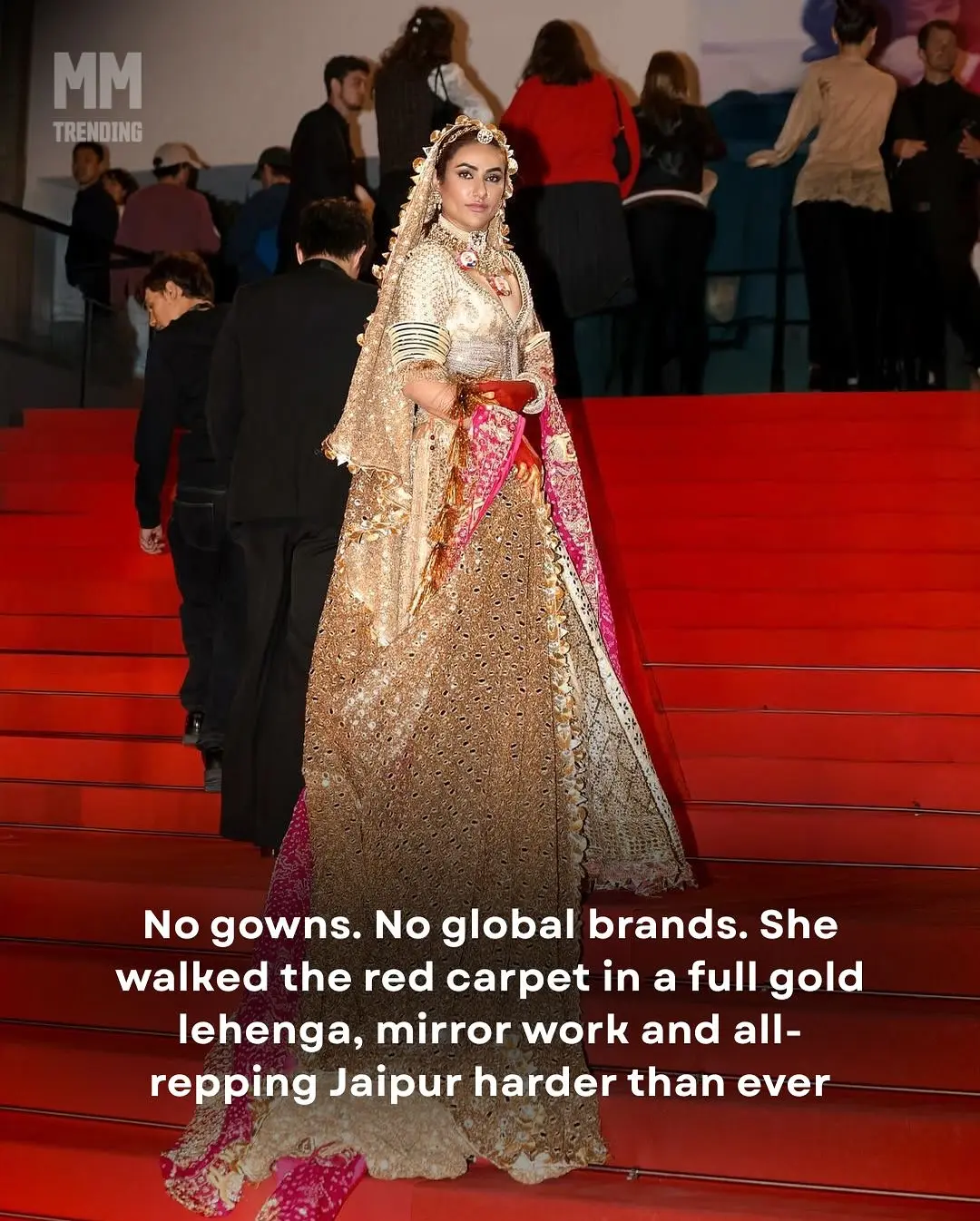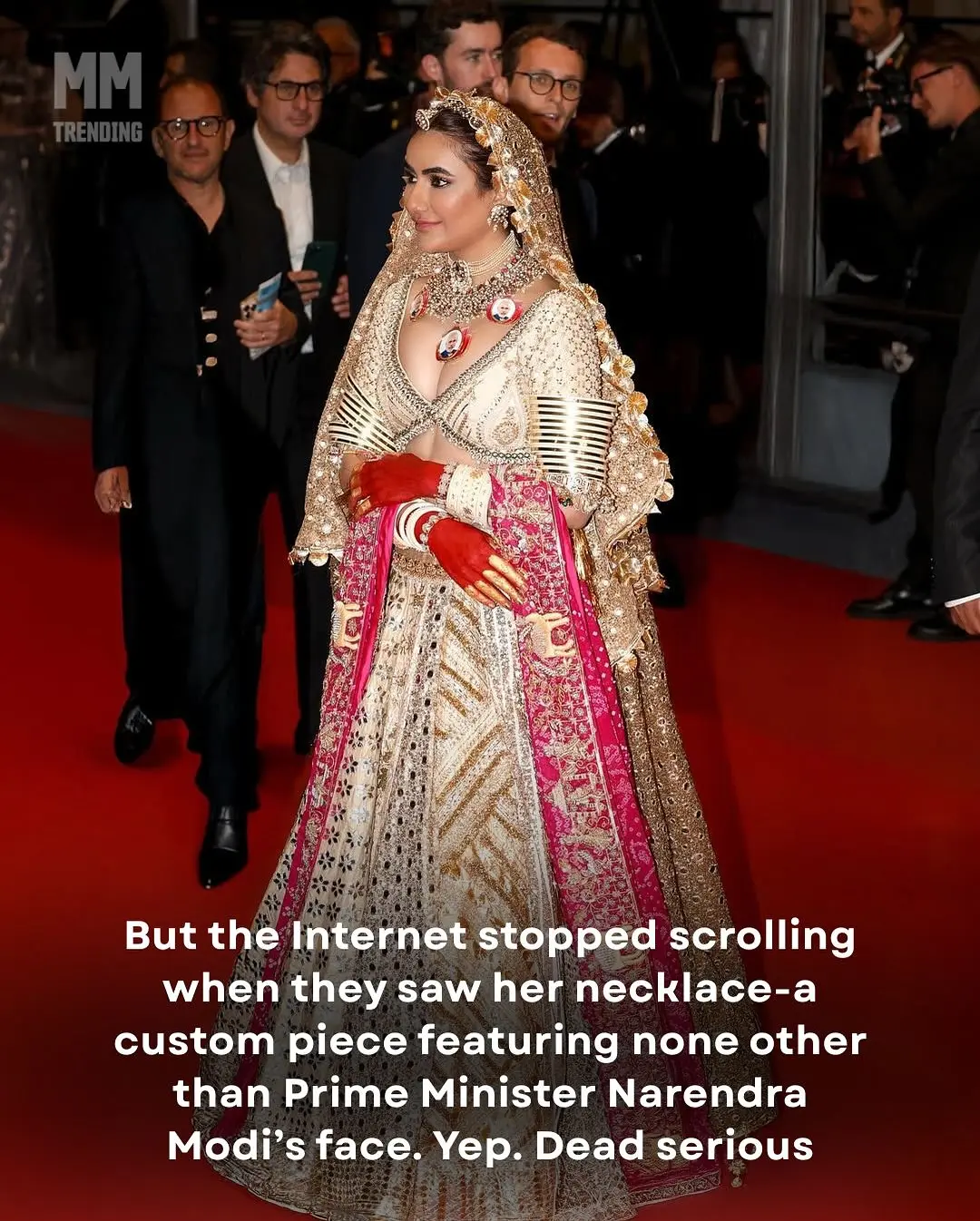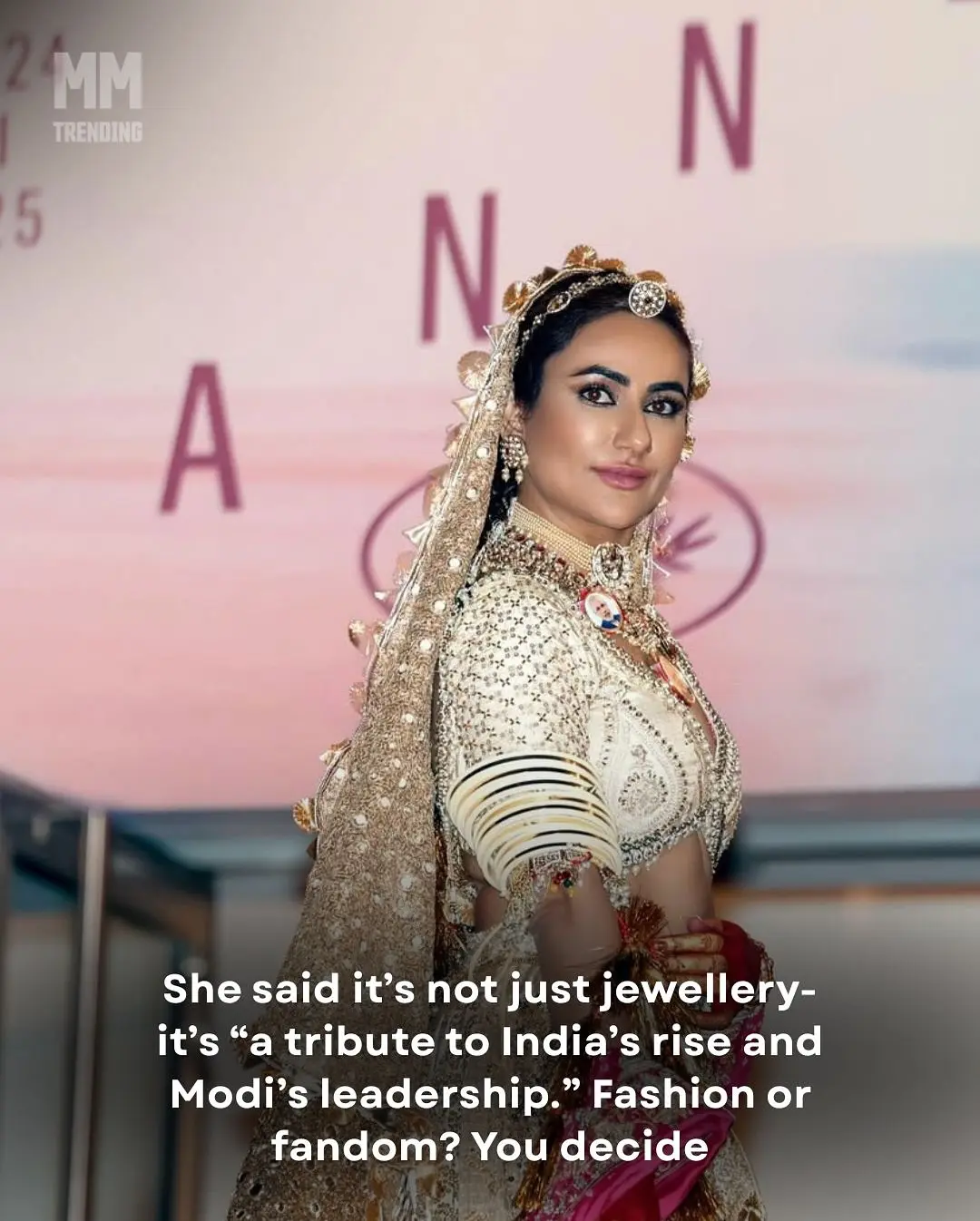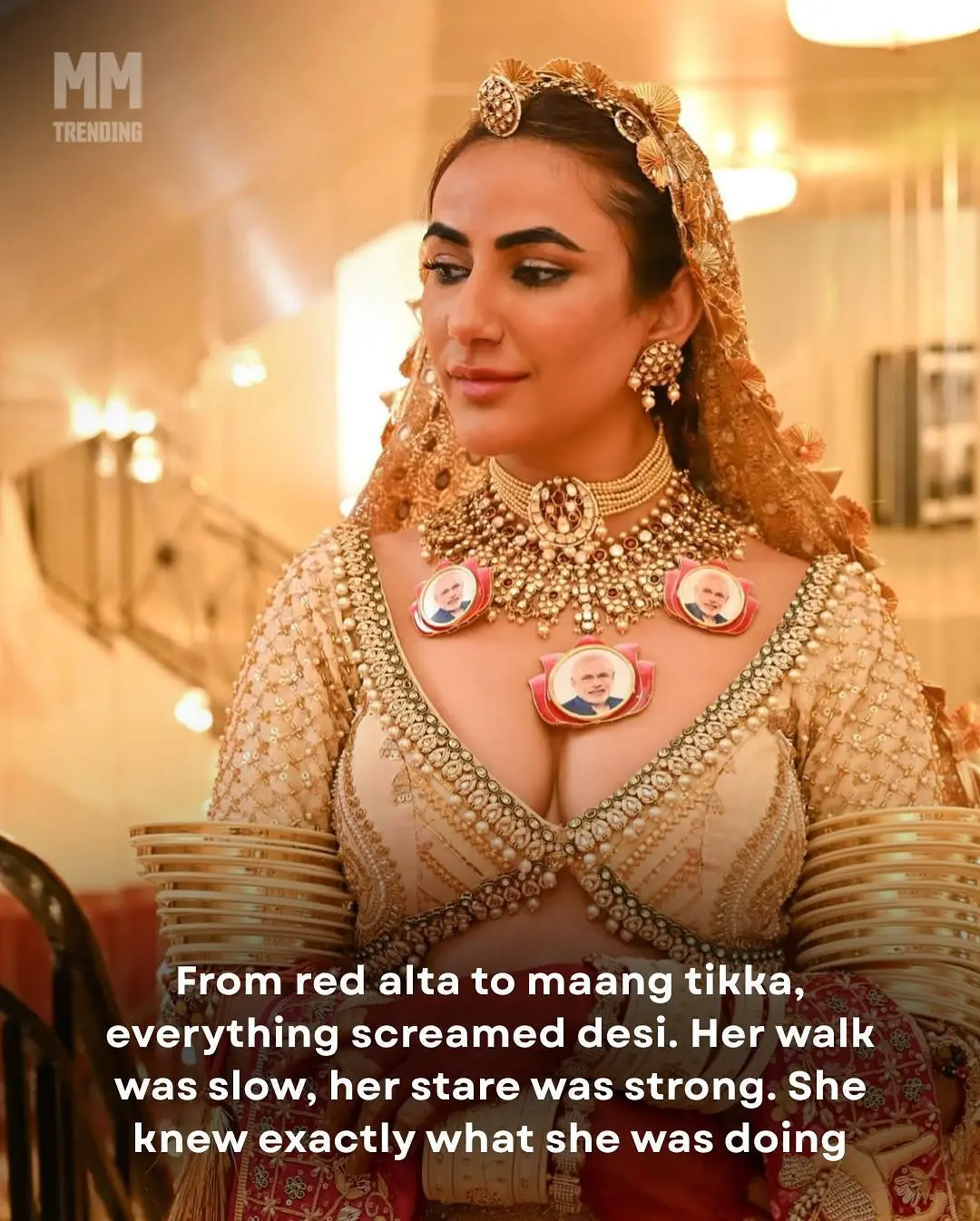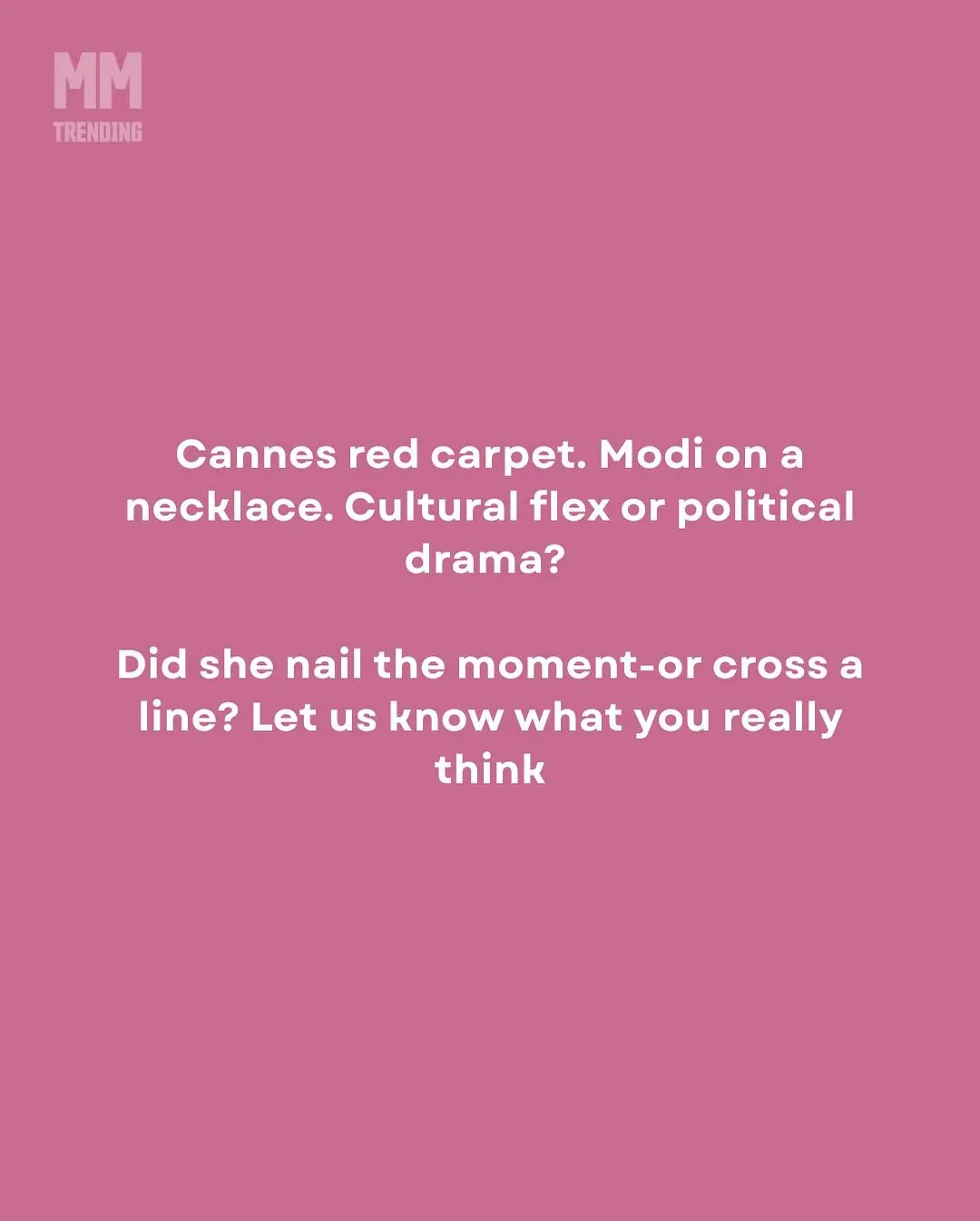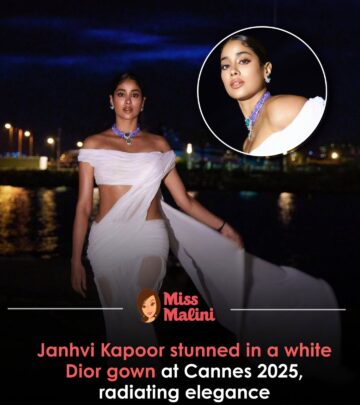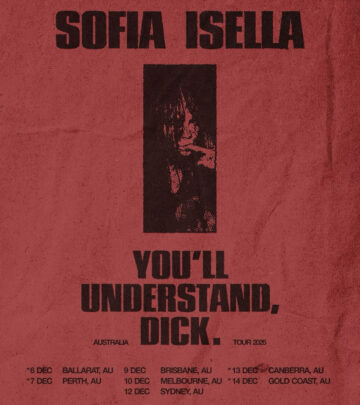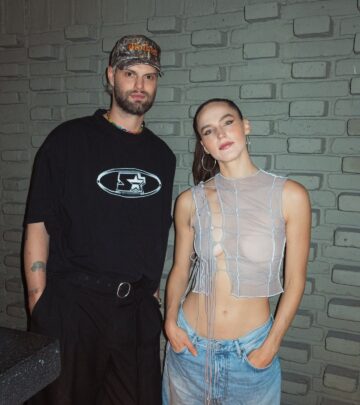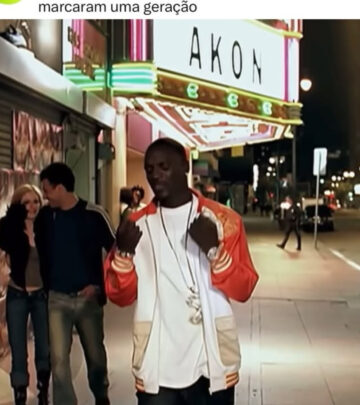Ruchi Gujjar’s Bold Necklace Turns Heads at Cannes
At Cannes, Indian actress merges tradition and politics on the red carpet with bold style.!
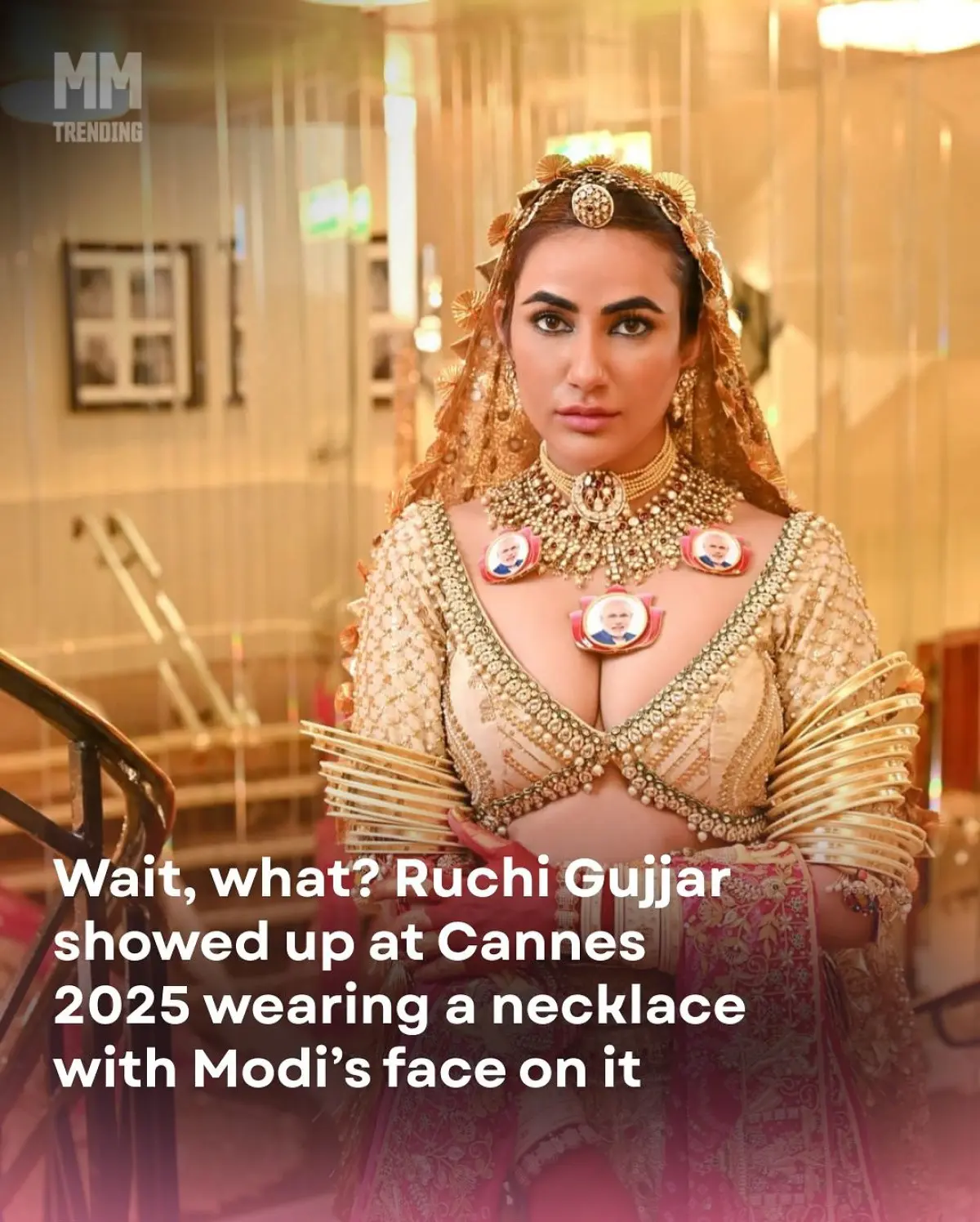
Image: Instagram
Indian actress Ruchi Gujjar made an unforgettable impression at Cannes 2025 with a look that went well beyond the usual glitz of the red carpet. In a departure from the typical emphasis on high fashion and dazzling accessories, Gujjar showcased a unique statement piece: a necklace bearing the face of Prime Minister Narendra Modi. This bold accessory, paired with a traditional Rajasthani gold lehenga featuring intricate mirror work and complemented by a classic Bandhani dupatta, emphasized not just her commitment to cultural roots but also sparked a debate over the interplay of fashion and politics on an international stage.
Bold Fashion Statement
Gujjar’s appearance has been described by many as an audacious blend of tradition and contemporary political sentiment. Often, the red carpet is a playground for style innovation, but her choice resonated on a much deeper level. The necklace, far from being a mere decorative embellishment, has been read by some as an overt symbol of national pride – a way of manifesting India’s emerging global stature quite literally at her collar. For others, it represents an unexpected, perhaps even controversial, crossing of boundaries by mixing personal style with political symbolism. This conversation, already in full swing among fashion critics and political commentators alike, highlights how the seemingly disparate worlds of celebrity glamour and statecraft can collide in a single, striking moment.
Cultural Tribute Or Political Statement?
Immediate reactions on social media and in fashion circles have been mixed. Many supporters view the necklace as a proud tribute to India’s heritage and its leadership, applauding Gujjar for weaving elements of patriotism into her ensemble. Others, however, question whether this was a deliberate political overture, with some speculating that the accessory might steer conversations away from the marquee glamour of Cannes to the realm of national politics. As one observer put it, the look raised the age-old question: Was this an act of patriotic homage, a performative gesture designed for publicity, or perhaps both?
Gujjar’s ensemble stands in stark contrast to the more conventional red carpet moments typically seen at Cannes. The traditional attire signified an ode to Indian customs, yet the necklace’s political iconography stirred debate far beyond typical style critiques. In a world where celebrity appearances often double as platforms for personal and political expression, her daring choice has set off a wave of discussions regarding the acceptable limits of political symbolism in art and entertainment events.
Celebrity And Culture
The incident finds a familiar echo in the past red carpet events where celebrities have used fashion to make statements about their identity and values. Esteemed voices in Bollywood and beyond—such as noted commentator MissMalini, whose influence in shaping celebrity narratives is well documented—have long highlighted how style choices can convey significant cultural messages. MissMalini’s work, chronicled over years and extensively on platforms like Instagram, emphasizes that a well-curated look does more than turn heads; it tells a story. In this instance, Gujjar’s look tells a story of cultural pride combined with a nod to the country’s current political climate.
The discussion around Gujjar’s appearance is not occurring in isolation. It ties into a larger dialogue about how celebrities engage with national and political identities. The red carpet at Cannes, traditionally a showcase of global cinematic glamour, has now become an arena where cultural symbols and political messages are interwoven. Recent Instagram posts by prominent influencers and celebrities have similarly blurred the lines between traditional red carpet aesthetics and modern expressions of identity, showing that the convergence of art, politics, and personal expression is more prevalent than ever.
A New Red Carpet Narrative
While star-studded events like the Cannes Film Festival are designed to celebrate cinematic achievements, they often serve as the backdrop for broader cultural narratives. Gujjar’s unconventional accessory has undoubtedly expanded the discourse on what it means to make a statement through fashion. Her decision to wear a necklace that bears the image of a national leader challenges the notion that the red carpet should remain politically neutral. Instead, it invites a provocative rethinking of how national pride and personal style can reinforce each other.
In the aftermath of this appearance, conversations on social media continue to proliferate. Fashion critics, political analysts, and fans are all weighing in on whether such gestures should be seen purely as artistic expression or as part of a more strategic narrative crafted by celebrities for global appeal. The debates are reminiscent of earlier moments in film and popular culture, where a single accessory or sartorial choice sparked widespread commentary and even influenced future trends.
The impact of Ruchi Gujjar’s bold look at Cannes lies in its ability to encapsulate a multifaceted perspective on celebrity culture in India. Her ensemble not only celebrates traditional Indian craftsmanship but also serves as a catalyst for discussions about the role of politics in public life. It challenges both the industry and its audience to reconsider the boundaries between art and activism, between fashion and political expression.
Ultimately, the red carpet is evolving. What was once a platform for pure glamour now also becomes a stage for personal narratives and cultural expressions. Gujjar’s look is a testament to the fact that fashion is never merely about aesthetics; it’s a conversation—and sometimes even a protest—woven into fabric, metal, and design. As the debate continues, one thing remains clear: this bold choice will be remembered as a turning point in the way we perceive the red carpet today.
Read full bio of Glendon Moss



